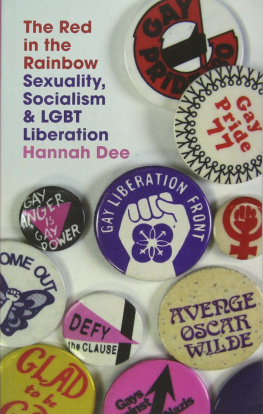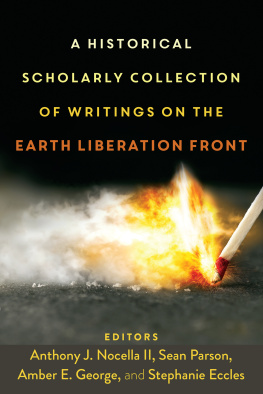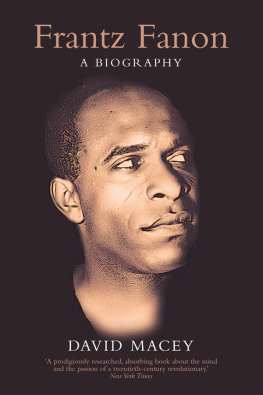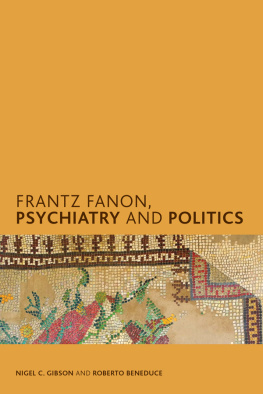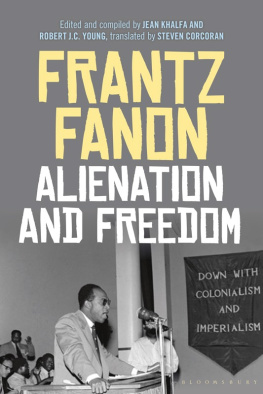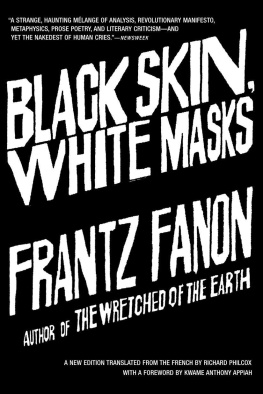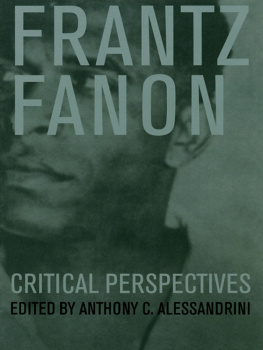
Leo Zeilig is a Research Associate at the Society, Work and Development Institute at the University of the Witwatersrand, South Africa and a Senior Research Fellow at the Institute of Commonwealth Studies at the University of London. He is an editor of the Review of African Political Economy and has written mainly on modern African history.
Also by Leo Zeilig:
Frantz Fanon: Voices of Liberation
HSRC Press, 2014
ISBN: 978 0 79692 485 8
Zeiligs remarkable book about a remarkable scholar-activist, Fanon, tells the story of the man, his ideas and the milieu. Zeilig rescues the kernel of Fanons thought from hostile detractors and mistaken adulators showing that it was anti-racist, anti-capitalist, internationalist and humanist. This book is a subtle and sympathetic engagement with Fanons life project: decolonisation and the plight of the national liberation movement in Africa. Everyone concerned with the human emancipation project must read this book.
Trevor Ngwane, Research Chair for Social Change, University of Johannesburg
A thought-provoking book that represents a new interpretation of Frantz Fanon, key thinker of the Third World anti-colonial revolution that transformed the twentieth century.
Martin Evans, Professor of Modern European History, University of Sussex
Leo Zeilig identifies Frantz Fanon as the most important figure in the ideological struggle against colonialism in the twentieth century, arguing that his critical engagement with Marxism enabled him to go far beyond that project. He was a brilliant champion of national liberation, yet he turned into its most devastating critic. In this captivating and passionate biography, Zeilig argues that while Fanon?s legacy is ambiguous, its emancipatory message demands our continuing attention if we are to challenge the continuing oppressions and inequalities of global capitalism. This book is a magnificent addition to the already hugely impressive corpus of work on Fanon?s philosophy and politics.
Roger Southall, Professor Emeritus, Department of Sociology, University of the Witwatersrand
Frantz
Fanon
Militant
Philosopher
of Third World
Liberation
Leo Zeilig

Published in 2016 by
I.B.Tauris & Co. Ltd
London New York
www.ibtauris.com
Copyright 2016 Leo Zeilig
The right of Leo Zeilig to be identified as the author of this work has been asserted by him in accordance with the Copyright, Designs and Patents Act 1988.
All rights reserved. Except for brief quotations in a review, this book, or any part thereof, may not be reproduced, stored in or introduced into a retrieval system, or transmitted, in any form or by any means, electronic, mechanical, photocopying, recording or otherwise, without the prior written permission of the publisher.
Every attempt has been made to gain permission for the use of the images in this book. Any omissions will be rectified in future editions.
References to websites were correct at the time of writing.
International Library of Twentieth-Century History 40.
ISBN: 978 1 84885 724 7 HB
978 1 84885 725 4 PB
eISBN: 978 0 85773 992 6
A full CIP record for this book is available from the British Library
A full CIP record is available from the Library of Congress
Library of Congress Catalog Card Number: available
For Ian Birchall
Contents
Abbreviations
Groups
| AJAAS | Association de la Jeunesse Algrienne pour lAction Sociale |
| ALN | Arme de Libration Nationale |
| AML | Amis du Manifeste et de la Libert |
| CCE | Comit de Coordination et dExcution |
| CNR | Convention nationale rvolutionnaire |
| CNRA | Conseil National de la Rvolution Algrienne |
| CRUA | Comit Rvolutionnaire pour lUnit et lAction |
| ENA | toile Nord-Africaine |
| GPRA | Gouvernement Provisoire de la Rpublique Algrienne |
| MNA | Mouvement National Algrien |
| MNC | Mouvement National Congolais |
| MPLA | Movimento Popular de Libertao de Angola |
| OAS | Organisation de lArme Secrte |
| PAIGC | Partido Africano da Independncia da Guin e Cabo Verde |
| PCA | Parti Communiste Algrien |
| PCF | Parti Communiste Franais |
| PCR | Parti Communiste Runionnais |
| POUM | Partido Obrero de Unificacin Marxista |
| PPA | Parti du Peuple Algrien |
| SAS | Sections Administratives Spcialises |
| SDECE | Service de Documentation Extrieure et de Contre-espionnage |
| SFIO | Section Franaise de lInternationale Ouvrire |
| UGEMA | Union Gnrale des tudiants Musulmans Algriens |
| UGTA | Union Gnrale des Travailleurs Algriens |
| UPA | Unio das Populaes de Angola |
| UPC | Union des Populations Camerounaises |
Works Cited in the Text
| BSWM | Black Skin, White Masks (Peau Noire, MasquesBlancs) |
| SDC | Studies in a Dying Colonialism (LAn V de la Rvolution Algrienne) |
| TAR | Toward the African Revolution (Pour la Rvolution Africaine) |
| WE | The Wretched of the Earth (Les Damns de la Terre) |

Map of Africa 1960

Map of Martinique
Acknowledgments
In 1960 Frantz Fanon addressed a pan-African summit in Accra. His analysis of events in Algeria and the torture of Front de Libration Nationale (FLN) militants by the French was penetrating, as he appealed in staccato phrases for African support in the brutal struggle being waged in the continents most violent war for decolonisation. Yet during this startling, brilliant speech Fanon seemed to become overwhelmed, exhausted. Afterwards, when a member of the audience approached him to inquire what was wrong, he explained that he had
suddenly felt overcome at the thought that he had to stand there, before the assembled representatives of African nationalist movements, to try and persuade them that the Algerian cause was important, at a time when men were dying and being tortured in his country for a cause whose justice ought to command automatic support from rational and progressive human beings.
At the time Fanon was already working as the FLNs representative in Ghana, which had won independence from the British in 1957. Fanon was both delighted and horrified at what he saw on the continent as it reached towards independence. For Fanon it was not enough to celebrate the achievements of decolonisation; it was necessary to educate, to strain at the limits of national freedom and to provoke and generate debate. He described how the national bourgeoisie, after independence, is only too happy to accept crumbs thrown to it from the departing colonial powers. Without social reform, without political and economic transformation, national liberation would be an empty shell. His warning to militants of the anti-colonial struggle was to make this independence for themselves, to maintain their mobilisation after the national flag is raised.
Next page


